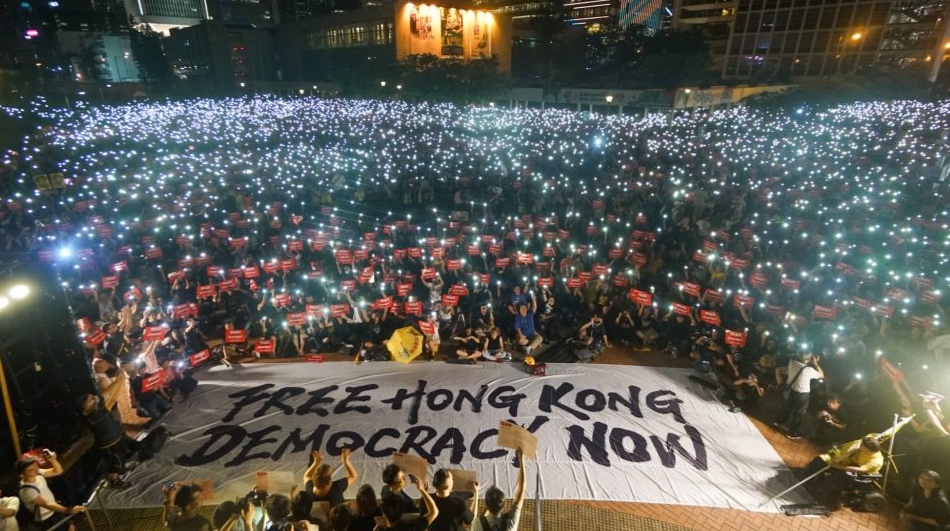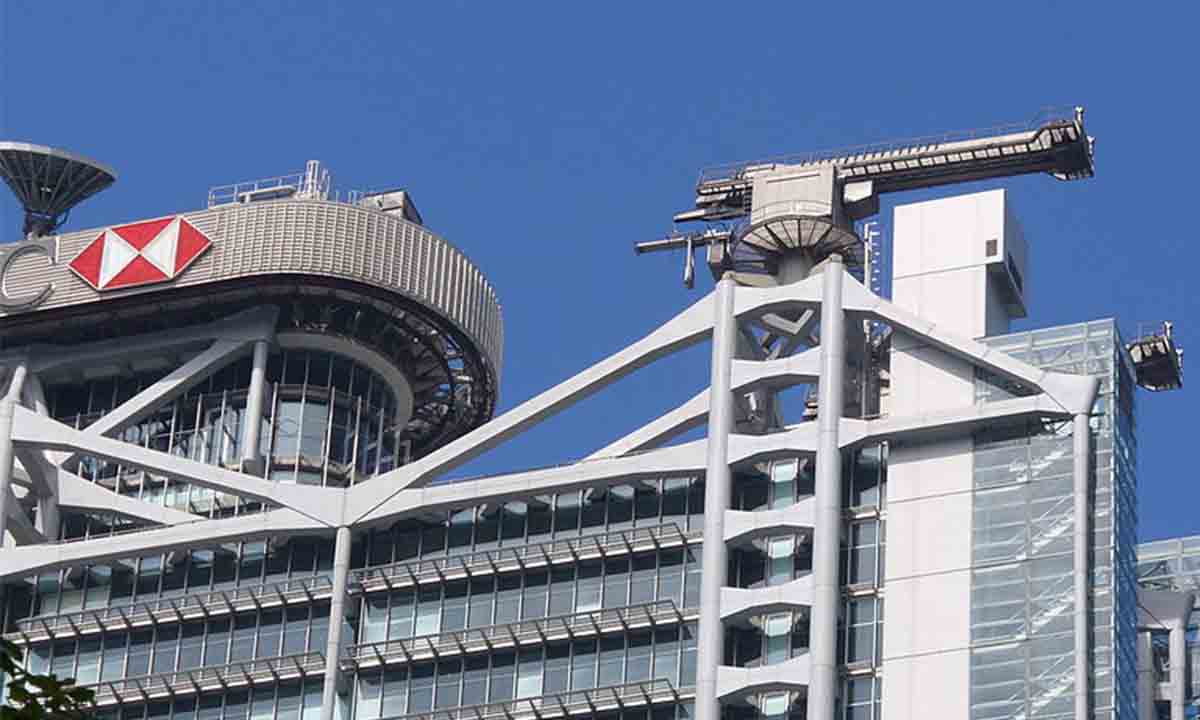UK multi-nationals HSBC and Standard Chartered PLC have been accused of giving into Beijing’s foreign policy demands.
Banking firm HSBC and financial services company Standard Chartered PLC have been accused of supporting the Chinese Communist Party’s draconian National Security Law for Hong Kong.
Standard Chartered Plc became the second UK bank (after HSBC) to endorse China’s proposed security law for Hong Kong. The bank said that the draconian edict can “help maintain the long-term economic and social stability” of Hong Kong.
In an emailed statement on Wednesday last week Standard Chartered said: “The ‘one country, two systems’ principle is core to the future success of Hong Kong and has always been the bedrock of business community’s confidence.
“We hope greater clarity on the final legislative provisions will enable Hong Kong to maintain economic and social stability.”
Today, Andrew Rosindell MP has tabled a new Early Day Motion to mark parliamentary “concern and surprise” at HSBC and Standard Chartered Plc’s public support of China’s newly proposed National Security Law in Hong Kong.
Andrew Rosindell, lead sponsor of the motion, said: “It is time we stand up and honour our duty to Hong Kong.
“We cannot let UK owned and run businesses put profits above human rights and fundamental freedoms.
“The actions of HSBC and Standard Chartered Plc undermine and devalue the UK’s political warning shots fired at China.
- Stablecoin Shift Fuels ‘Selective Altseason’ as Altcoin Trading Outpaces Bitcoin
- Bitcoin miner OTC sales remain robust as reserves decline to their lowest levels in several years, as reported by CryptoQuant
- Bitcoin options market bearish ahead of quarterly expiry
“We cannot simultaneously scorn and invest in a regime that so overtly breaches human rights laws.
“More must be done and action must now be taken against these companies if we are to truly, consistently and meaningfully oppose the bully that is China”.
This law will undermine the democratic principles and support for human rights that underpin Hong Kong.
The Chinese government last week claimed HSBC was funding “terrorists”, becuase it was slow to act in closing the acounts of people involved in pro democracy demonstrations in the city.

Beijing tested HSBC’s loyalty to the regime by claiming they have played a role in funding Hong Kong riots and that the British multi-national was involved in the arrest in Canada of Meng Wanzhou, chief financial officer of Huawei.
Now Chinese authorities have reported that the bank is shutting accounts of those involved in the Hong Kong pro-democracy protests.
HSBC sent a statement to CCP propaganda organ the Global Times on Monday that said: “As part of our responsibility to know our customers and safeguard the financial industry, we regularly review our customers’ accounts.
“If we spot activity differing from the stated purpose of the account, or missing information, we will proactively review all activity, which can also result in account closure.”
The Global Times was quick to point out that HSBC obeyed the central command.
“These are the accounts that channel funds to terrorists.
“Some hailed the action by the bank while others said that the bank is too late.
“They termed the bank’s previous inaction a fence-sitting tactic.”
The CCP through its English Language propagand organ, The Global Times, issued a warning to British multi-nationals, such as HSBC, that if they decide to ally themselves with the foreign policy interests of the UK and the US, then they will be “hit hard”.
The Global Times was making it clear that HSBC needed to make the right choice for its business interests in China to stay healthy.
Meaning it needed to support the new security law for Hong Kong, and Huawei’s UK 5G infrstructure roll out.
Refering to HSBC the editor of the Global Time said that “its image would bear an indelible stain and likely that its Chinese business would take a hit” if it chose to go against Chinese foreign policy standpoints.
The mouthpiece of the Party added: “Given its reliance on Chinese profits, it will be a life-or-death test for HSBC.
“And whether or not the bank can overcome its dilemma will really test the political wisdom of its management.
“We don’t want to see such a big bank hit hard for political reasons, but companies need to pay for the choices they have made.”
HSBC makes most of its profits from China’s Hong Kong market, which contributed more than 80 percent of its profits during the first quarter of 2020, according to its quarterly report.
The banking sector in Hong Kong is the second biggest in Asia after Japan.
Beijing is now using Hong Kong’s importance to the world’s banking groups to pressure these international organisations into supporting their tightening of control over the city.
Both HSBC and Standard Chartered PLC have been contacted for a reply on the allegations, but have not yet responded.

